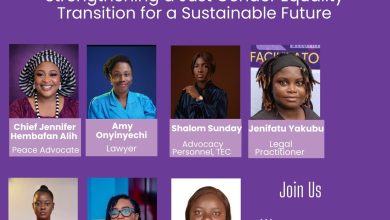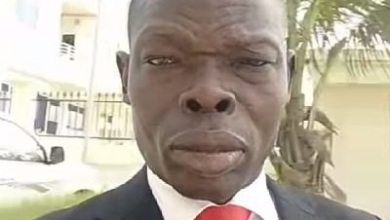
|
Getting your Trinity Audio player ready...
|
Today, February 6, is the International Day of Zero Tolerance for Female Genital Mutilation (FGM). On this day, we are forced to confront a harrowing truth: over twenty million Nigerian women and girls live with the brutal scars of this practice. Twenty million. That is not just a statistic. It is an indictment. It is a chilling reminder of how far we, as a society, are willing to go to control and suppress women. Nigeria accounts for a staggering 19.5% of the global prevalence of FGM, and yet the country remains a glaring example of hypocrisy, a nation that claims to value its daughters but continues to betray them, cut them, and silence them.
The cruelty begins early. In Nigeria, the mean age for FGM victims is 1.7 years. Let that sink in: not even two years old. These are babies: fragile, innocent, helpless. They are mutilated before they can understand what is being done to them before they can form words to object or cry out for help. And why? Because a society so obsessed with purity and control cannot trust women to grow into their bodies without carving pieces of them away. These girls are not given a choice, not given a voice, and not given the chance to escape. They are held down by their own mothers, grandmothers, and aunts—women who should protect them but instead become the enforcers of patriarchal violence.
We are told that FGM is a tradition. That it is culture. That it is necessary for a girl to become a “woman.” But let’s be honest: FGM has nothing to do with honour and everything to do with power. This is not about tradition. It is about control. It is about a society that fears female autonomy so deeply that it resorts to mutilation. These communities, so desperate to suppress women, have convinced themselves that pleasure is dangerous, that autonomy is promiscuity, and that the only way to secure morality is to destroy a girl’s ability to experience it.
Consider this: FGM is justified as a way to prevent promiscuity. But what is promiscuity if not another word for choice? For agency? For the freedom to desire and to own one’s own body? What these communities fear is not promiscuity. It is power. The power of a woman who understands her worth, who owns her pleasure, and who refuses to be confined by the narrow expectations of a patriarchal society.
The consequences of FGM are devastating, and they linger for a lifetime. Girls who undergo FGM are left with severe physical and psychological scars. The immediate effects include excruciating pain, shock, and infections that can lead to death. But the long-term consequences are equally horrifying. FGM increases the risk of obstructed labour, traumatic childbirth, infertility, and lifelong infections. Women who survive this ordeal often suffer from chronic pain and sexual dysfunction. Psychologically, the damage is profound. Many survivors battle depression, anxiety, and post-traumatic stress disorder, haunted by the betrayal of those who should have protected them.
And yet, the violence persists. In 2015, Nigeria passed the Violence Against Persons (Prohibition) Act, criminalising FGM. On paper, it was a victory, a step forward in the fight against this heinous practice. But what has changed? Girls are still being cut, and the law is little more than an empty promise. Where are the arrests? Where are the convictions? Where is the political will to enforce this law and protect the most vulnerable?
The truth is that Nigeria has failed its daughters. It has failed to confront the deep-seated misogyny that fuels FGM. It has failed to hold perpetrators accountable. And it has failed to create a society where girls can grow up whole, unscarred, and free.
Let’s be clear: FGM is not a cultural issue. It is a human rights issue. It is violence, plain and simple. And as long as it persists, we cannot claim to value human rights or gender equality. As Dr Natalia Kanem, Executive Director of the United Nations Population Fund, once said, “If gender equality were a reality, there would be no female genital mutilation.” And this is the heart of the matter. FGM is a symptom of a much larger problem: a society that devalues women, that fears their autonomy, and that prioritises control over compassion.
The fight against FGM is not just about ending a harmful practice. It is about dismantling the systems of power that enable it. It is about challenging the patriarchal norms that see women as objects to be controlled rather than individuals with rights. It is about creating a world where girls are valued for who they are, not for their ability to conform to narrow definitions of purity.
What can we do to end this? First, we must break the silence. The fight against FGM cannot be won if we continue to tiptoe around the subject, afraid to offend cultural sensibilities. Culture is not static; it evolves. And any culture that requires the blood and pain of its daughters is one that must change.
We must hold our government accountable. Laws mean nothing if they are not enforced. It is not enough to criminalise FGM on paper; there must be real consequences for those who perpetrate this violence. This means arresting and prosecuting cutters, parents, and community leaders who enable FGM. It means sending a clear message that this practice is not just harmful. It is criminal.
We must also support survivors. Too often, their voices are silenced, their experiences dismissed. Survivors must be at the forefront of this movement, sharing their stories and shaping solutions. They are not just victims—they are warriors, and their courage can inspire change.
Finally, we must address the root causes of FGM: the fear of female autonomy, the obsession with control, and the deep-seated misogyny that underpins it all. This is not an easy fight, but it is a necessary one because every girl deserves to grow up whole. Because every girl deserves a future free from fear. Because every girl deserves to own her body.
Waris Dirie, a survivor and activist, put it best: “Female genital mutilation targets little girls, baby girls—fragile angels who are helpless, who cannot fight back. It’s a crime against a child, a crime against humanity. It’s abuse. It’s absolutely criminal, and we have to stop it”.
Today, as we observe the International Day of Zero Tolerance for FGM, let us honour the survivors and remember the girls who never had a chance to fight back. Let us commit to action, to justice, and to change because enough is enough. FGM is not culture. It is not tradition. It is violence, and it must end.






